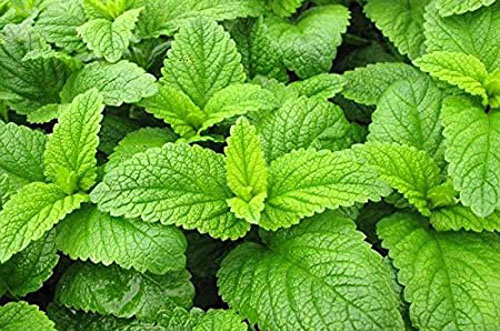Medicinal plants: potent antiviral remedies to add to your diet
Congestion, fever and sore throat are all symptoms that could point to a viral infection. Fortunately, there are many potent herbs that have been used since ancient times to prevent a viral infection or reduce its severity.

These medicinal plants’ antiviral properties can be attributed to the numerous potent compounds they contain. These phytochemicals not only help fight harmful viruses, but they also actively help the body heal itself in case of an infection. Additionally, many medicinal plants support the immune system by strengthening the body’s natural defenses.
Here are some of the most potent antiviral medicinal plants on the planet, many of which can be included in a healthy diet:
– Oregano – Carvacrol, the main active component of oregano oil, is a promising antiviral agent. Studies show that oregano oil and carvacrol can inhibit the activity of viruses, such as the murine norovirus that causes stomach flu in humans.
– Sage – Sage is an aromatic medicinal plant typically used for culinary purposes. But natural healers have long been using sage to treat viral infections. Sage’s antiviral properties are generally attributed to its active components, safficinolide and sageone.
– Basil – In vitro studies support basil’s potential as an antiviral agent. One study found that basil extract is effective against herpes viruses, hepatitis B and enterovirus. Researchers say basil’s antiviral activities can be attributed to compounds like apigenin and ursolic acid.
– Fennel – Fennel, a popular Mediterranean vegetable, is believed to have tremendous antiviral potential because of a compound called trans-anethole. Cell culture studies have shown that trans-anethole can reduce the infectivity of herpes viruses.
– Garlic – Although botanically considered a vegetable, garlic is often used as a medicinal plant and is an incredibly potent remedy for viral infections. This is thanks to its wealth of bioactive components that not only combat viruses like influenza and the human papillomavirus (HPV), but also enhance immune function.
– Lemon balm – Lemon balm, a lemon-scented herb that comes from the same family as mint, contains several compounds with antiviral properties. In fact, previous studies have found that lemon balm offers protection against herpes viruses and the enterovirus that causes hand, foot and mouth disease.

– Peppermint – The leaves and essential oils of peppermint contain high concentrations of menthol and rosmarinic acid. These potent compounds are behind peppermint’s antiviral activities against viruses like the respiratory syncytial virus (RSV).
– Rosemary – Oleanolic acid in rosemary has exhibited potent antiviral activity against some pathogenic viruses, including the herpes, hepatitis and influenza viruses.
– Echinacea – Echinacea is one of the most commonly used medicinal plants in natural medicine. Different parts of the plant, including its leaves and roots, are used to create remedies for viral infections caused by the herpes and influenza viruses.
– Elderberry – Elderberries are typically used to treat the flu. In a recent study, scientists found that the plant is especially potent against the flu virus because its compounds block key proteins the virus uses to enter and infect cells.
– Licorice – Licorice is a traditional Chinese medicine used to treat sore throat, cough, fatigue and pain. Recently, studies have found that licorice exhibits antiviral activities against herpes viruses, the human immunodeficiency virus (HIV) and RSV. Scientists attribute licorice’s antiviral properties to some of its active components, including glycyrrhizin, liquiritigenin and glabridin.
– Astragalus – Astragalus root is commonly used in Traditional Chinese Medicine to boost immune health. But recent in vitro and in vivo studies show that astragalus also helps fight viruses, such as hepatitis C, avian influenza H9 and herpes viruses.
– Ginger – The antiviral properties of ginger are primarily attributed to gingerols and shogaols. Together, these phenolic compounds inhibit viral replication.
– Ginseng – Certain plant compounds in ginseng, called ginsenosides, are known to have potent antiviral effects against herpes and hepatitis viruses.
– Dandelion – The leaves, stems and flowers of the dandelion plant have been shown to exhibit powerful antiviral effects against the dengue virus that causes a potentially life-threatening disease marked by high fever, body aches and vomiting.
There are numerous medicinal plants and mushrooms that offer protection against viral infections. To keep viral infections at bay and strengthen your immune defenses, try incorporating antiviral herbs into your daily diet.
yogaesoteric
February 7, 2021
Also available in:
 Français
Français
